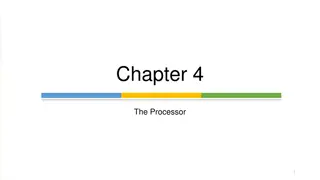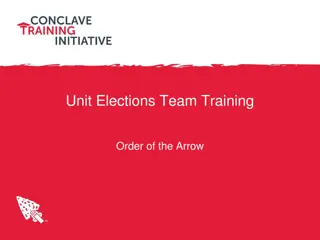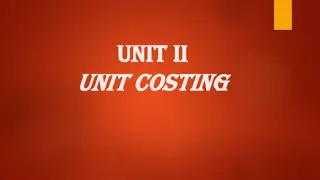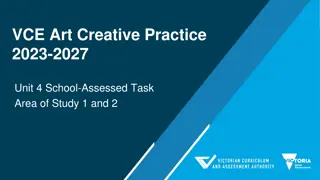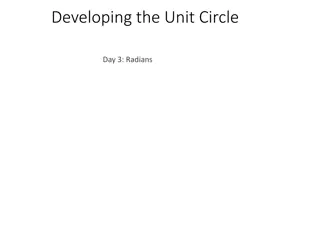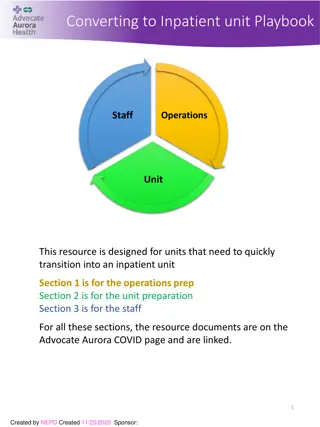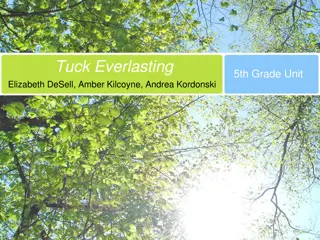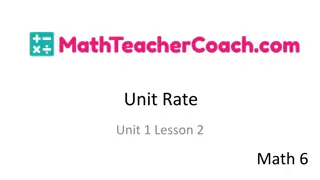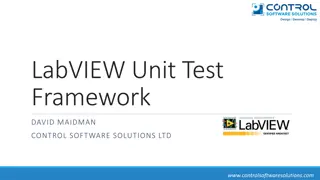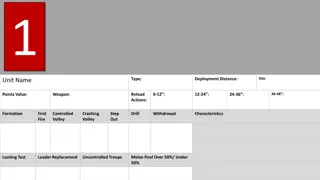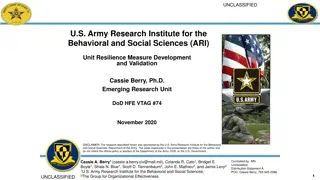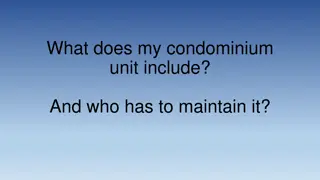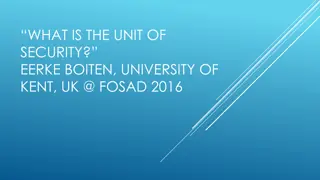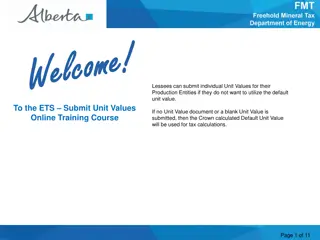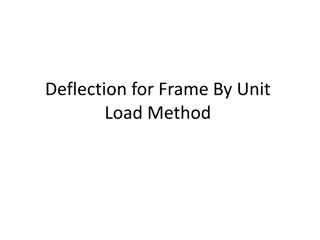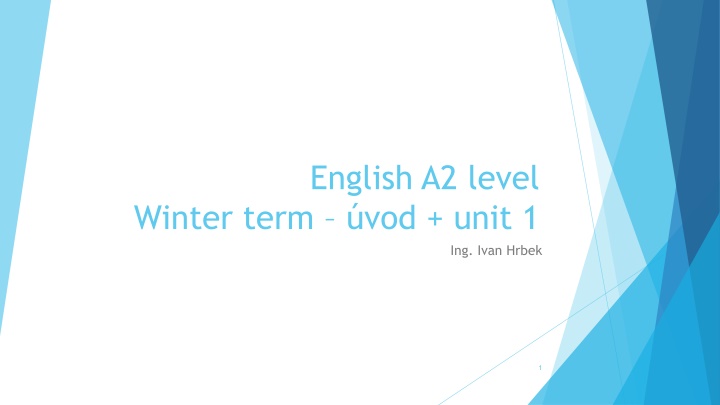
English A2 Level Winter Term VOD Unit 1 Study Materials
Explore the study materials for Unit 1 of the English A2 Level Winter Term VOD course. Dive into grammar topics, including present simple and present continuous tenses, adverbs of frequency, and more. Get ready to enhance your English skills with recommended textbooks and resources like "Lifestyle Pre-Intermediate" and "Essential Grammar in Use."
Download Presentation

Please find below an Image/Link to download the presentation.
The content on the website is provided AS IS for your information and personal use only. It may not be sold, licensed, or shared on other websites without obtaining consent from the author. If you encounter any issues during the download, it is possible that the publisher has removed the file from their server.
You are allowed to download the files provided on this website for personal or commercial use, subject to the condition that they are used lawfully. All files are the property of their respective owners.
The content on the website is provided AS IS for your information and personal use only. It may not be sold, licensed, or shared on other websites without obtaining consent from the author.
E N D
Presentation Transcript
English A2 level Winter term vod + unit 1 Ing. Ivan Hrbek 1
Materials Textbook: Lifestyle pre-intermediate, Units 1 5 Stru n p ehled gramatiky pro rove A2 (Hrbek Vogeltanzov ) m te na Moodle Doporu en slovn k: Longman Contemporary Dictionary Doporu en u ebnice gramatiky: Raymong Murphy: Essential Grammar in Use 2
Programme: Unit 1: Present simple + present continuous, present simple + adverbs of frequency Unit 2: Future tense: will Unit 3: Past simple: use + form Unit 4: Comparative and superlative adjectives Unit 5: Future tense: going to 3
Unit 1 Present simple part 1 pages 5 + 7, grammar pages 164 - 165 Pou it : P tomn as prost pou v me, mluv me-li o opakovan ch innostech, dlouhodob ch situac ch, o v cech, kter jsou v dy pravda a tehdy, mluv me-li o faktech i re li ch. Tvary: Kladn v ty:) I / you / we / they work. he / she / it works.3. osoba jednotn ho slap ib r koncov s (viz n e) Z por tvo mepou it m pomocn ho do not (don t), v p pad 3. osoby jednotn ho sladoes not (doesn t) + infinitivu slovesa! Tak e z porn v ta zn : He does not work. Nikoli:He does not works. I / you / we / they do not (don t) work. he / she / it does not (doesn t) work. 4
Unit 1 Present simple part 2 pages 5 + 7, grammar pages 164 - 165 Ot zku tvo me pomoc pomocn ho Do / Doesum st n hop edpodm t. Do I / you / we / they work? Does he / she / it work? Where do you work? Kr tk odpov : V kr tk odpov dipou ijemep slu n osobn z jmeno + pomocn do / does v kladn ch v t ch, don t a doesn t v z porn ch v t ch. V znamov sloveso se ji neopakuje. Do you work in a garage? Yes, I do. Nikoli:Yes, I work. Does he pay cash? No, he doesn t.Nikoli:No, he doesn t pay. 5
Unit 1 Present simple part 3 pages 5 + 7, grammar pages 164 - 165 Pravidla pravopisu pro 3. osobu jednotn ho sla: V t ina sloves p ib r -s: speak speaks, work works. Do, go p ib raj -es: do does, go goes. Slovesa zakon en na ch, sh, s, ss, x, z p ib raj es: miss misses, watch watches, wash washes, fix fixes. Slovesa zakon en na y: n sleduje-li y po samohl sce, sloveso pouze p ib r s: play plays, say says, stay stays. n sleduje-li y po souhl sce, -y se m n na ies (zm k uje): cry cries, fly flies, study studies. Sloveso have m pro 3. osobu jednotn ho slo(he, she, it) tvar has. 6
Unit 1 Present continuous part 1 page 5, grammar pages 164 - 165 Pou it : P tomn aspr b hov pou v me, mluv me-li o innostech, prob haj c ch pr v te i zhruba te a o kr tkodob ch aktivit ch. D le pou v me as pr b hov pro vyj d en p echodn chz le itost a vyj d en pl nu v bl zk budoucnosti (viz n e Budouc as a mod ln slovesa). I m waiting for my flight. She cannot come to the phone now. She is sleeping. Pou v me ho rovn , kdy mluv me o sou asn ch trendech. The number of passengers is rising. 7
Unit 1 Present continuous part 2 page 5, grammar pages 164 - 165 Tvorba: Sloveso be + v znamov sloveso + ing Kladn v ty: I am working, you are working, she/he/it is working, we/you/they are working. Z por tvo mestejn jako u slovesa be pomoc not: I am not working, you are not working, atd. Sta en tvary jsou stejn jako u slovesa be. Ot zku tvo mestejn jako u slovesa be zm nou slovosledu: Are you working? Is he working? Kr tk odpov : V kladn kr tk odpov di mus me pou t pln tvary: Is Tom working on a new project? Yes, he is. Nikoli:Yes, he s. V z porn kr tk odpov dipou v me tvary sta en . Are Federico and Enrica going to the cinema now? No, they aren t. 8
Unit 1 Present continuous part 3 page 5, grammar pages 164 - 165 Pravidla pravopisu pro koncovku -ing: V t ina sloves p ib r -ing: speak speaking, work working. Slovesa zakon en e vypou t koncov -e: drive driving, dance dancing, write writing. U jednoslabi n ch sloves kon c ch jednou samohl skou + souhl skou se koncov souhl ska zdvojuje: shop shopping, sit sitting, stop stopping. !POZOR! koncov -x nebo w se nezdvojuje: fix fixing, chew chewing. U dvouslabi n ch i v ceslabi n ch sloves kon c ch jednou samohl skou + souhl skou s p zvukem na posledn slabice se koncov souhl ska zdvojuje: begin - beginning, forget forgetting. !POZOR! je-li p zvuk na prvn slabice, koncov souhl ska se nezdvojuje: happen happening, listen listening Dvouslabi n slovesa kon c jednou samohl skou + -L, L v britsk angli tin zdvojujeme bez ohledu na p zvuk: travel travelling, cancel cancelling. U obou je p zvuk na prvn slabice. !POZOR! Slovesa zakon en na y v dyp ib raj koncovku ing: play playing, study studying. Zde neplat zm k ov n ! Nikoli: She is studiing. Slovesolie m pr b hov tvar lying, sloveso die dying. 9
Ptomnasprbhov nebo prost? Part 1 P tomn aspr b hov pou v me, mluv me-li o innostech prob haj c ch pr v te i zhruba te . asto zde pou v me v razy jako: now, today, at the moment, this evening, this month apod. P tomn as prost pou v me, mluv me-li o opakovan ch innostech, dlouhodob ch situac ch a v cech, kter jsou v dy pravda. asto zde pou v me v razy jako: usually, always, often, normally, ever, never, when, apod. P tomn aspr b hov : Please be quiet. The doctor is working. (now). Rozd l proti: P tomn as prost : Doctors normally work from 7 a.m. to 3 p.m. P tomn aspr b hov : What is he doing? Is he writing a letter to his mother? (now). Rozd l proti: P tomn as prost : He usually writes letters to his mother three times a month. 10
Ptomnasprbhov nebo prost? Part 2 POZOR! Existuj slovesa, kter se obvykle nepou vaj v pr b hov m tvaru (plat to pro pr b hov asy ve v ech asov ch rovin ch p tomn , minul , budouc , p edp tomn apod.): believe, depend, forget, hate, know, like, love, mean, need, prefer, remember, understand, want, see, hear, smell, have (ve smyslu n co vlastnit: eknemeI have two cars. Nikoli: I am having two cars. Ale v p enesen m smyslu have v pr b hov m ase pou v me: She can t come to the phone she is having a shower.) P klady: I love you. Nikoli:I am loving you. What do you want? Nikoli: What are you wanting? 11
Unit 1: Adverbs of frequency page 7, grammar page 165 Postaven ve v t slovosled: Ur en asuvyj d en dv ma anebo v ce slovy (every month, on Monday, in the evening), p padn ud vaj c konkr tn dobu (today, tomorrow), klademe zpravidla na konec v ty: They don t work tomorrow. She plays the guitar in the evening. P slovce etnosti (frequency adverbs) vyj d en jedn m slovem (often, always, never, ever p padn slo en tvary jako nap . hardly ever) klademe obvykle p ed v znamov sloveso (v kladn ch i z porn ch v t ch i v ot zk ch): I often watch TV. Do you often watchTV? I don t often watch TV. ALE u slovesa be je klademe a za sloveso be: Jim is never late for meetings. Buses aren t always on time. 12


